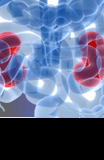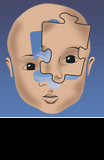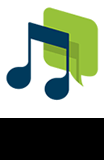NHS 111 First
Dial 111
Please visit NHS 111 First for details of how to access emergency care.
Emergency Departments
The John Radcliffe Hospital in Oxford and Horton General Hospital in Banbury both have Emergency Departments, open 24 hours a day.
Please visit NHS 111 First for details of how to access emergency care.
The John Radcliffe Hospital has a dedicated Children's Emergency Department.
If you need an ambulance, dial 999
Please remember - if the situation is an emergency and you need immediate care dial 999 and ask for an ambulance.
- Chest pain
- Severe breathing difficulty
- Severe blood loss
- Choking
- Blacking out
Dial 999 immediately.
40 percent of 999 calls are from patients who do not need to go to hospital. Misuse costs lives.
How to recognise a stroke: act FAST
- Facial weakness - can the person smile? Has their mouth or eye drooped?
- Arm weakness - can the person raise both arms?
- Speech problems - can the person speak clearly and understand what you say?
- Time to call 999 - if the person has any of the three above symptoms, call an ambulance.
Fast access to the proper treatment can radically improve the chances of a good recovery.
For more information visit the Stroke Association website:
Alternatives to A&E
Alternatives for non-emergency cases
Minor Injuries Units in Oxfordshire
Each year we work closely with GPs and community based social and healthcare teams to manage the demands on our local services.
Please think carefully about how you access health and medical care and consider if attending an A&E department is really necessary and the best option for you.
Every winter we see more people with underlying health problems who need to be admitted to hospital. It's vital that our emergency departments are able to concentrate on the patients who are really unwell.
For urgent care, think about whether to contact your GP, a pharmacy, a first aid centre or a minor injuries unit before going to A&E or calling an ambulance.
If you're not sure where to go dial 111 for advice - this is a new phone number making it easier for patients to access urgent NHS healthcare 24 hours a day, 365 days a year. It is free to call from landlines and mobiles.
For immediate life-threatening emergencies call 999.




























































